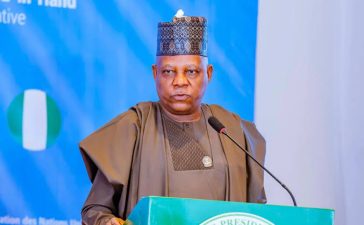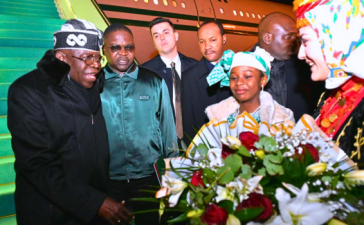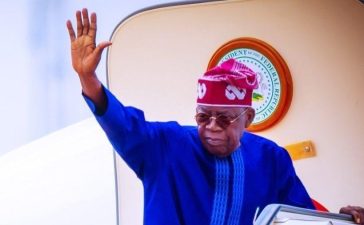Popular Islamic scholar Sheikh Ahmad Gumi has denied claims that he supports bandits, insisting that his engagements with armed groups are strictly for peacebuilding and conflict resolution.
The clarification comes amid renewed calls for his arrest following a surge of kidnappings across northern Nigeria, which has forced school closures and prompted intensified security operations by the federal government.
Speaking on Frontline, a current affairs programme on Eagle 102.5 FM, Ilese-Ijebu, Gumi said his role is humanitarian and not political or financial.
“I am absolutely a peacemaker. I don’t want bloodshed. Nigerians forget that our military men are dying too. We recently lost a Brigadier General because of a stalemate with Boko Haram,” he said.
Gumi argued that many armed herders and insurgents lack channels to express grievances, which pushes them into violent confrontations. He compared his role to that of a doctor, explaining, “People accuse the doctor of supporting the sickness. Understanding their side is the only way to propose a cure.”
The scholar stressed that dialogue remains the only sustainable solution to Nigeria’s security crisis, warning that military force alone cannot end the conflict. “Peace is still sweeter than war. Many of these fighters believe they are ready to die. We must show them the value of peace, education, hospitals and a better life. Their brutality is a sign of weakness, not strength,” he said.
On allegations of foreign involvement in terrorism, Gumi stated that Boko Haram has international backing, while bandits are mostly locally armed. He also dismissed claims of a religious war in Nigeria, calling narratives pushed by foreign actors, including former US President Donald Trump, misleading and uninformed.
Responding to his controversial visits to bandit camps, Gumi said he acted with government approval, specifically citing invitations from the Zamfara State Government to negotiate peace. He emphasized that his visits were transparent, conducted with police, officials, and the press.
He defended some military withdrawals during attacks, citing tactical reasons: “A platoon of nine soldiers cannot fight 300 bandits. The military sometimes must tactically withdraw to avoid unnecessary deaths.”
Gumi proposed a structured amnesty program similar to that used in the Niger Delta, along with phased ranching supported by government infrastructure. He stressed the importance of creating model ranches and grazing routes to naturally encourage herders to adopt peaceful practices.
He also warned against foreign military intervention, arguing that Nigeria must resolve its security challenges internally. “American military intervention will worsen things. Boko Haram is sponsored from outside, but herders are local and driven by survival,” he said.
The cleric maintained that his interventions are not financially motivated, noting, “If I wanted money, I would join politics. I was a military captain. I am a medical doctor. I am not jobless and I do not need money from this.”
Amid mounting pressure and public scrutiny, Gumi reiterated that his sole interest is in stopping bloodshed and restoring peace in conflict-ravaged communities across northern Nigeria.







